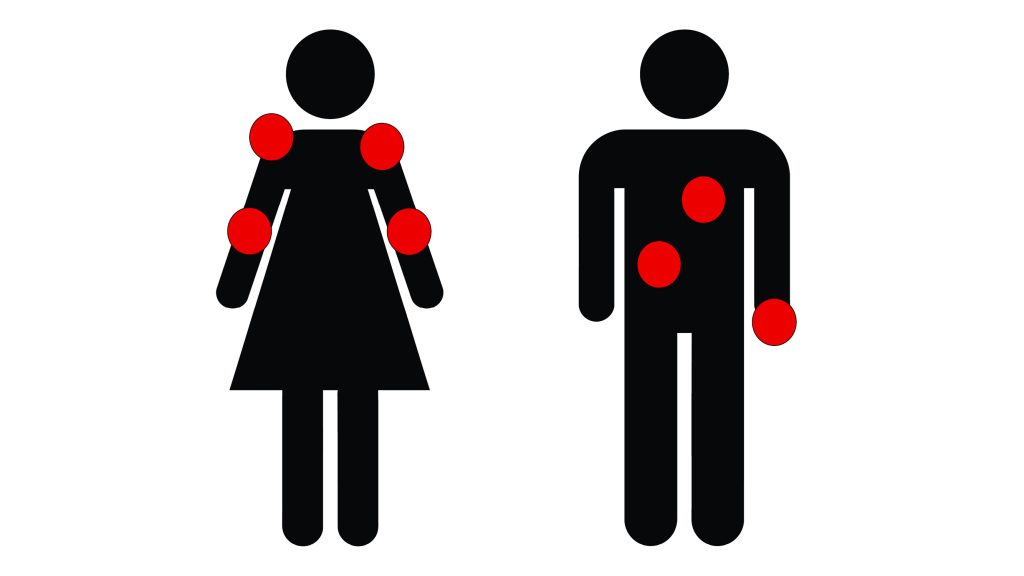Focus on gender-specific differences in rheumatology

Whether lupus, collagenosis, or psoriatic arthritis—men and women differ significantly in terms of disease progression, symptoms, and response to treatment. Recent studies from the German Rheumatology Research Center (DRFZ), a Leibniz Institute, highlight why gender-specific strategies are becoming increasingly important in rheumatology.
Gender was the focus of this year’s German Rheumatology Congress in Wiesbaden in September. Dr. Katinka Albrecht from the Health Services Research Group at the DRFZ gave a presentation on gender-specific aspects of rheumatic diseases, which attracted particular attention. The topic struck a chord: “Even at the pre-congress press conference, there was already a great interest in learning more about the differences between women and men with rheumatic diseases,” said Albrecht.
Data from the National Databasef the Collaborative Arthritis Centres show, for example, that men are significantly less likely than women to develop collagenosis. When they do develop the disease, it usually occurs later in life, but more often with severe organ manifestations.
Gender differences in SLE
A recent systematic review by Albrecht et al. on systemic lupus erythematosus (SLE) confirms these differences. Men with SLE are more likely to have kidney involvement, serositis, antiphospholipid syndrome, greater kidney and cardiovascular damage, and severe infections. Women with SLE, on the other hand, are more likely than men to have skin and mucous membrane involvement, Raynaud’s symptoms, and secondary Sjögren’s syndrome.
Gender-specific differences in psoriatic arthritis
Different patterns can be observed in psoriatic arthritis: a recently published study from the RABBIT-SpA registry by Lisa Linder from the DRFZ Registry Research in Rheumatology Group shows that women are more likely to have musculoskeletal involvement, while men are more affected by skin and nail changes. In addition, men respond better to therapy with TNF-α inhibitors, while women are more likely to discontinue treatment due to side effects.
“The results underscore the need for gender-specific treatment strategies in rheumatology,” emphasises Dr. Anne Regierer, head of the Register Research in Rheumatology Group.
Katinka Albrecht on Deutschlandfunk radio
Following the congress, Dr. Albrecht answered questions on the topic of gender and rheumatic diseases on the Deutschlandfunk radio program “Sprechstunde” (Consultation Hour).
Press releases
Picture: AdobeStock_1481376601 bearbeitet













